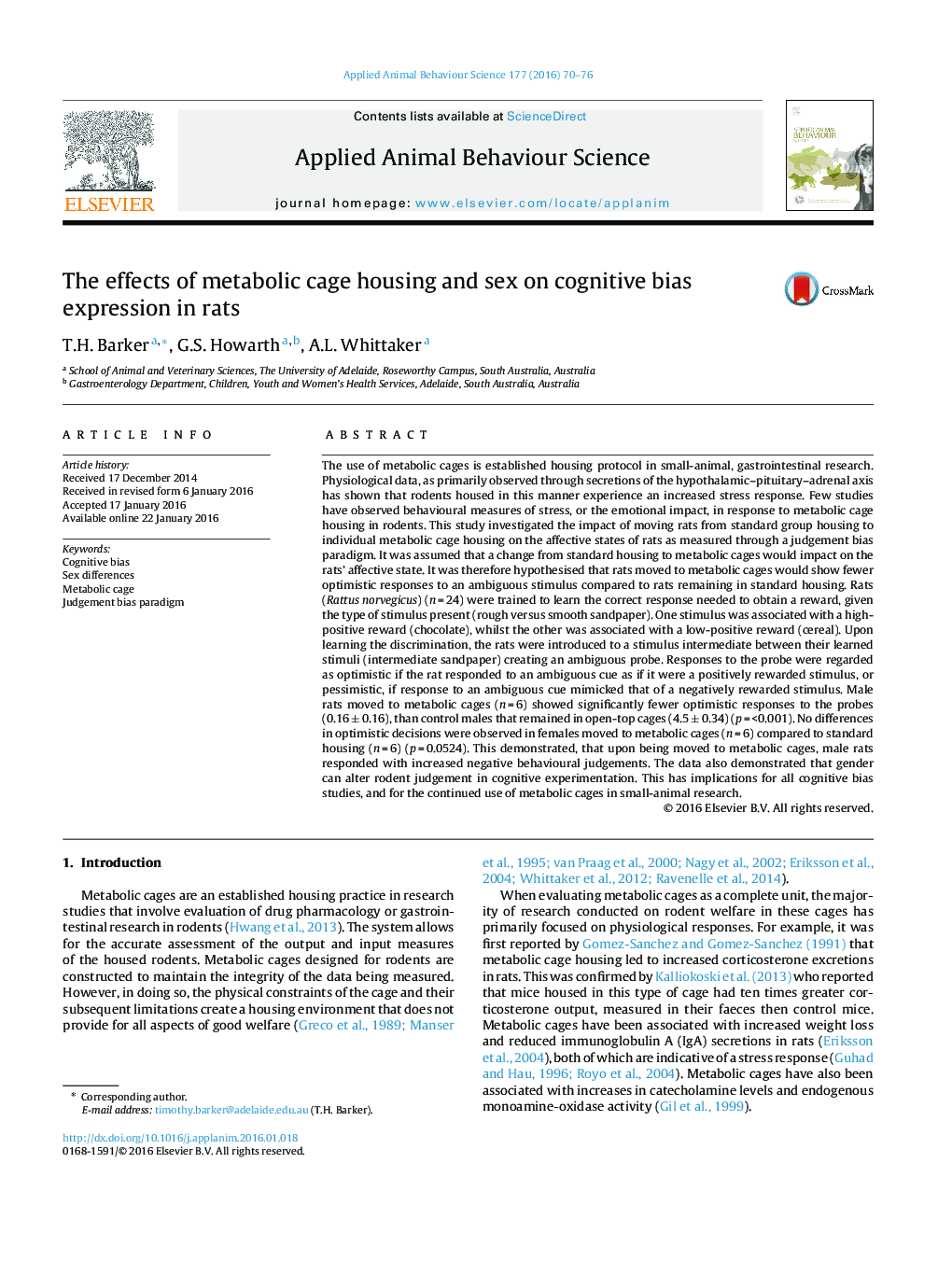| کد مقاله | کد نشریه | سال انتشار | مقاله انگلیسی | نسخه تمام متن |
|---|---|---|---|---|
| 4522430 | 1625329 | 2016 | 7 صفحه PDF | دانلود رایگان |
• Males in metabolic cages displayed more pessimistic responses than control males.
• No differences observed between females in metabolic cages compared to control.
• Females displayed more optimistic responses in metabolic cages compared to males.
• Males experience negatively valanced emotional state when moved to metabolic cages.
The use of metabolic cages is established housing protocol in small-animal, gastrointestinal research. Physiological data, as primarily observed through secretions of the hypothalamic–pituitary–adrenal axis has shown that rodents housed in this manner experience an increased stress response. Few studies have observed behavioural measures of stress, or the emotional impact, in response to metabolic cage housing in rodents. This study investigated the impact of moving rats from standard group housing to individual metabolic cage housing on the affective states of rats as measured through a judgement bias paradigm. It was assumed that a change from standard housing to metabolic cages would impact on the rats’ affective state. It was therefore hypothesised that rats moved to metabolic cages would show fewer optimistic responses to an ambiguous stimulus compared to rats remaining in standard housing. Rats (Rattus norvegicus) (n = 24) were trained to learn the correct response needed to obtain a reward, given the type of stimulus present (rough versus smooth sandpaper). One stimulus was associated with a high-positive reward (chocolate), whilst the other was associated with a low-positive reward (cereal). Upon learning the discrimination, the rats were introduced to a stimulus intermediate between their learned stimuli (intermediate sandpaper) creating an ambiguous probe. Responses to the probe were regarded as optimistic if the rat responded to an ambiguous cue as if it were a positively rewarded stimulus, or pessimistic, if response to an ambiguous cue mimicked that of a negatively rewarded stimulus. Male rats moved to metabolic cages (n = 6) showed significantly fewer optimistic responses to the probes (0.16 ± 0.16), than control males that remained in open-top cages (4.5 ± 0.34) (p = <0.001). No differences in optimistic decisions were observed in females moved to metabolic cages (n = 6) compared to standard housing (n = 6) (p = 0.0524). This demonstrated, that upon being moved to metabolic cages, male rats responded with increased negative behavioural judgements. The data also demonstrated that gender can alter rodent judgement in cognitive experimentation. This has implications for all cognitive bias studies, and for the continued use of metabolic cages in small-animal research.
Journal: Applied Animal Behaviour Science - Volume 177, April 2016, Pages 70–76
